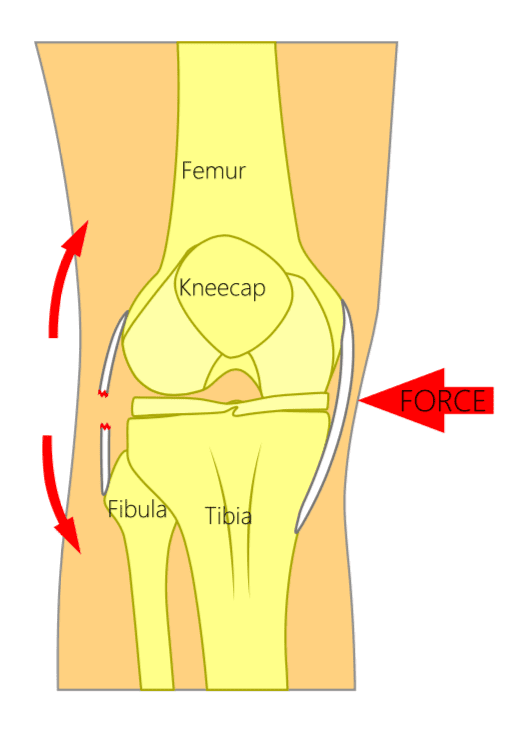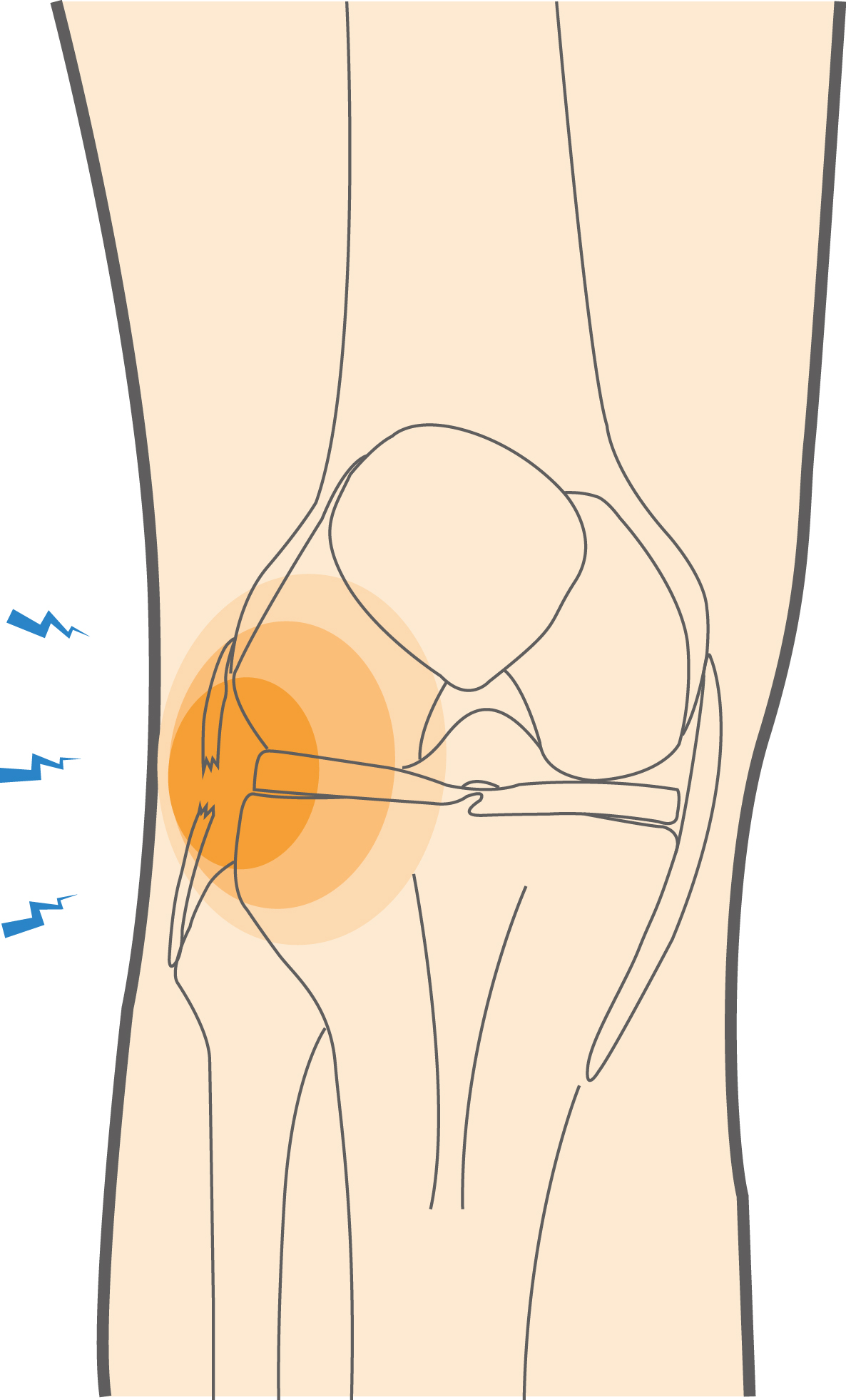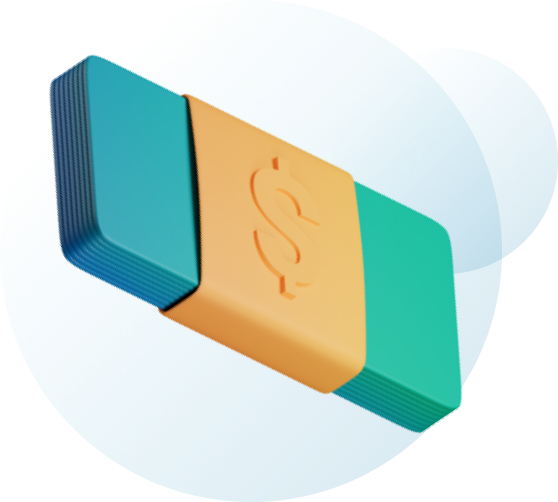Lateral Collateral Ligament (LCL) Tears Symptoms & Treatment
A Lateral Collateral Ligament (LCL) tear (knee) occurs when the ligament on the outer side of the knee is overstretched or torn, often due to a sudden impact or twisting injury. Symptoms include pain, localized swelling, instability, and difficulty walking. Treatment may involve rest, physical therapy, bracing, or very rarely surgery.
Start with our quick Symptom Assessment or connect directly with an Upswing Coach today.
Request an AppointmentReady to take the next step?
Start your symptom assessment or connect with a coach instantly.
Find Relief TodayOverview
The lateral collateral ligament (LCL) is one of the four key ligaments stabilizing the knee. Located along the outer side of the joint, it connects the thigh bone (femur) to the smaller bone in the lower leg, known as the fibula.
LCL injuries often occur in contact sports where player collisions are frequent. They usually happen alongside damage to other knee structures, such as the anterior cruciate ligament (ACL) or posterior cruciate ligament (PCL). Isolated LCL injuries are uncommon.
LCL tears are categorized based on their severity:
- Grade I: The ligament is stretched but remains intact.
- Grade II: The ligament is partially torn.
- Grade III: The ligament is completely torn.


What causes Lateral Collateral Ligament (LCL) Tears?
LCL tears usually result from a direct impact to the inside of the knee, pushing the joint outward, an injury pattern known as varus stress. This sudden force overstretches or tears the ligament on the outer side of the knee.
- How the Injury Occurs: The LCL tear happens when a strong inward force on the knee stretches the outer ligament beyond its capacity, leading to partial or complete rupture.
- Common Everyday Causes: LCL tears can also occur from slipping on uneven ground, twisting the knee while getting out of a car, or during accidents where the leg is forced outward suddenly.
LCL tears are common in these sports:
- Basketball: Sudden direction changes or collisions while landing can strain the outer knee.
- Football: Tackles or side hits often cause the knee to bend unnaturally outward.
- Hockey: High-speed contact or falls on the ice can twist the knee joint sharply.
- Skiing: Losing balance or catching an edge during turns can create an outward pull on the knee.
Symptoms
The symptoms of a lateral collateral ligament (LCL) tear (knee) can closely resemble those of other common knee injuries, which sometimes makes diagnosis challenging without a medical examination. Unlike ligament injuries that cause significant swelling, LCL tears typically do not result in noticeable puffiness of the knee joint. However, other symptoms often signal that something is wrong, including:
- Pain on the outside of the knee: This discomfort may be sharp immediately after the injury and can become a persistent ache during movement, especially when walking, turning, or putting weight on the affected leg.
- Stiffness: The knee may feel tight or difficult to bend and straighten fully, limiting mobility and making everyday activities such as climbing stairs or squatting uncomfortable.
- A feeling of looseness or instability: You might feel the knee could “give out” or fail to support your weight, particularly when changing direction or standing on uneven surfaces.
These symptoms can range from mild to severe, depending on the grade of the tear. If pain or instability persists, seeking medical evaluation to confirm the diagnosis and prevent further damage to the joint is essential.
When to see a doctor
If you have experienced an injury to the knee and have pain symptoms on the outside of your knee, make an appointment to see an orthopedic specialist. During your appointment, your doctor will examine the knee for damage to the ligament. If your doctor notices tenderness over the femur or tibia where the lateral collateral ligament connects, this may indicate an LCL injury.
Most of the time, an LCL tear occurs with more serious injuries to the knee. For this reason, your doctor will do tests to ensure you do not have any other damage to the knee, like an ACL or PCL tear.
To make a diagnosis, your doctor may prescribe the following imaging tests:
- X-rays to rule out a fracture of the leg
- MRI to show the extent of damage and check for damage to other muscles and ligaments of the knee
Non-operative treatment
LCL tears are most often managed with non-surgical treatment. Immediately after the injury, you’ll be advised to follow specific steps to help control pain and reduce swelling, which may include:
- Resting the leg to prevent further strain on the ligament
- Applying ice several times a day to minimize inflammation
- Taking non-steroidal anti-inflammatory medications (NSAIDs) such as ibuprofen to relieve pain and swelling
Once the initial discomfort and swelling begin to subside, a structured physical therapy program is introduced. This program focuses on gently stretching and progressively strengthening the muscles around the knee to restore range of motion, stability, and function. During recovery, you’ll likely need to wear a knee brace to provide additional support and protection, especially during movement or physical activity.
Try these exercises to help address your condition:
Below is a PDF of the Exercise Program
Surgical Treatment
Surgery for an LCL tear is uncommon, as the ligament often heals naturally with proper rest and rehabilitation. However, surgical repair or reconstruction may be required if the injury involves additional damage to other ligaments or surrounding knee structures.
Recovery
The recovery period for a lateral collateral ligament (LCL) tear depends on the severity and grade of the injury:
- Grade I: Mild knee LCL sprains generally heal within about three weeks.
- Grade II: Partial tears usually require three to six weeks for full recovery.
- Grade III: Complete LCL tears can take six weeks or longer to heal, often needing a more intensive rehabilitation program.
You can safely return to sports or physical activity once you’ve regained a complete range of motion and normal strength and no longer experience pain on the outer side of the knee, always under your doctor’s guidance. After recovery, wearing a supportive knee brace during activity is often recommended to protect the joint and prevent re-injury from varus instability.
Dr. Jay Kimmel is a board-certified orthopedic surgeon specializing in sports medicine, arthroscopic surgery, and shoulder and knee disorders. He completed his orthopedic training at New York-Presbyterian/Columbia University Medical Center and a Sports Medicine Fellowship at Temple University.
Dr. Kimmel previously served as the Director of the Connecticut Sports Medicine Institute at Saint Francis Hospital and has held faculty appointments as Clinical Assistant Professor in the Departments of Orthopedics and Family Medicine at the University of Connecticut. He has extensive experience caring for athletes as a team physician for high school and collegiate programs and continues to teach in the athletic training departments at Westfield State University and Springfield College.
Find the Support You Need — Right When You Need It
Whether you’re managing pain for the first time, need ongoing guidance, or require expert medical care, we’re here to help you every step of the way.
ORTHO DIRECT
Video visit with an orthopedic doctor for advice and a care plan.
$30
/MonthMRI DIRECT
Fast, affordable MRI with orthopedic review. No insurance required.
$499
/MonthFrequently Asked Questions
How do I know if my knee pain is from an LCL tear or something else?
Pain isolated to the outside of the knee, especially after a direct impact or twisting injury, may point to an LCL tear. However, knee injuries can be complex, and symptoms of an LCL tear may overlap with injuries to other ligaments. The best way to know is to get a proper diagnosis from an orthopedic specialist, often using MRI or physical tests.
How can I ensure my lateral collateral ligament injury is correctly identified?
Seek an orthopedic specialist and request an MRI if you’re experiencing persistent lateral knee pain after a varus stress injury, especially if the knee feels unstable.
Will an LCL tear heal on its own without surgery?
In most cases, yes. LCL tears, especially Grades I and II, typically heal well with non-surgical treatment, including rest, physical therapy, and bracing. Surgery is usually only necessary if the tear is severe (Grade III) or if other parts of the knee, such as the ACL or meniscus, are also injured.
What exercises should I avoid while recovering from an LCL tear?
Avoid activities that place lateral stress on the knee or involve twisting, pivoting, or sudden changes in direction, such as basketball, soccer, or running on uneven surfaces. You should also skip any exercises that cause pain or feel unstable and always follow your physical therapist's guidance during recovery.

